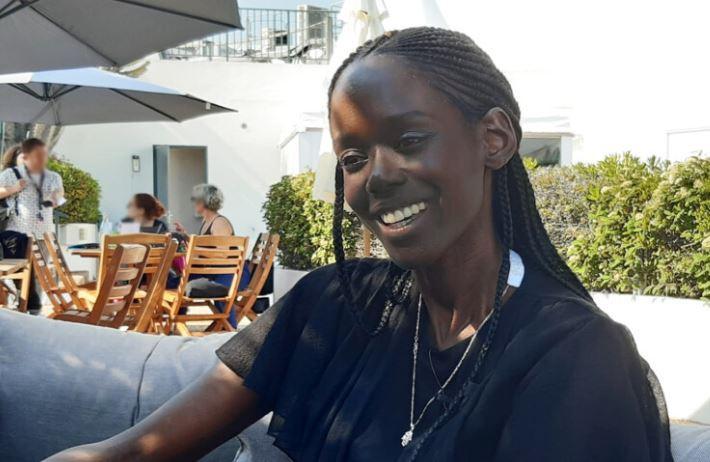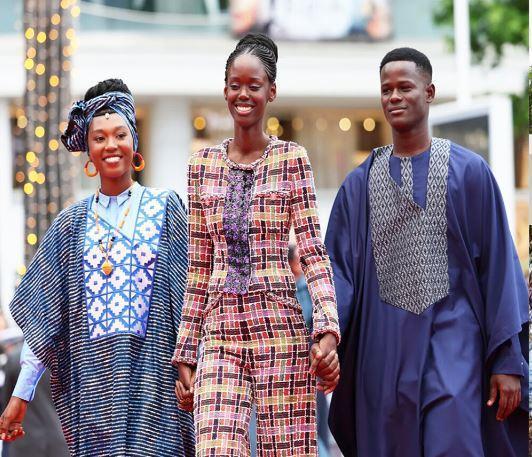
Africa-Press – Senegal. Franco-Senegalese filmmaker Ramata-Toulaye Sy, whose feature film “Banel and Adama” was selected in the official selection of Cannes 2023, said she was very proud to have shot her first film in Podor, in the northern region of Senegal, moreover in the Pulaar language, a decision that she considers to be “a political gesture”.
« It’s the region where my parents are from, and filming in Fouta can only be done in Pulaar, but it’s also a political gesture, because it’s important to bring my vision of the world to Africa. , which needs me more than Europe”, she said in an interview with the APS, justifying her choice to shoot her film in her mother tongue.
Rejoicing at having been able to make this film « under the banner of Senegal and Africa », she says that she did « a big casting » for five months in Fouta to find suitable actors who are coming for the first time. At the movie theater.
Ramata-Toulaye Sy was able to count on an actor coach who did a five-day preparation with the two main performers of his film, but not on the script. “It was improvisation and breathing,” she says, before adding: “They are non-professionals, very difficult to find, because to play Adama and especially Banel, you need strength”.
The Franco-Senegalese filmmaker says she represents Senegal, the African continent, youth and also women at this 76th edition of the Cannes International Film Festival, which ends next Saturday (May 16 to 27).
“I represent everything at the same time, because they say in Africa that when a country wins, all of Africa wins. We are very connected. I represent women of course, and African youth. And I also represent people who have dual nationality like me, who do a lot of things in Africa and Senegal,” says the young director of “Astel”, a multi-award-winning short film.
An activist for political, social and economic equality between men and women
Ramata-Toulaye Sy admits having felt « a lot of pressure » when he arrived on the Croisette. “Before, I lived it at home, quite protected, with a lot of happiness. But once on the Croisette, with everyone around and all the questions asked, it’s pressure! “says the one who clearly presents herself as” a feminist “.
« But she says I have a definition of feminism that comes from Chimamanda Ngoze Adichie [Nigerian writer who inspires her]: she defines feminism as social, political and economic equality between men and women ».
The co-screenwriter of the film « Our Lady of the Nile » with the Franco-Afghan novelist and filmmaker Atiq Rahimi, member of the official jury at Cannes 2023, admires her compatriot and eldest, the Senegalese filmmaker Djibril Diop Mambety (1945-1998) whose she has seen all the movies.
« I’m more influenced by his personality as a filmmaker. That’s what pushed me to dare to have a vision of African cinema more than its imagination in itself. He pushed young people to move forward in the film industry,” explains Ramata-Toulaye Sy.

The young filmmaker relies on references that are more literary than cinematographic, and “more Afro-American and less African”.
“I am of Franco-Senegalese culture. I was born and raised in France. We were going to Senegal with my parents for the school holidays. I bathed in both cultures. (…) the Greek tragedy, but also the tales I heard in Senegal. Without forgetting the African-American magical realism, as well as 100 years of loneliness by Gabriel Garcia Marquez, Toni Morrison, Maya Angelou and Faulkner.
Ramata-Toulaye Sy admits that these two main characters, Banel and Adama, are inspired by tales told by her mother, but also by Greek tragedy and English-language theater that she likes.
His film “Banel et Adama” is with “Les filles d’Olfa” by the Tunisian Kaouther Ben Hania, one of the African feature films in competition for the Palme d’Or.
It also competes in the Golden Camera which puts in competition all the first feature films of the different sections of the Cannes competition.
Pour plus d’informations et d’analyses sur la Senegal, suivez Africa-Press






